
Stories of daring, stories of technological feats, stories of prevailing against the odds ... these are the stories we tell at the National Air and Space Museum. Dive in to the stories below to discover, learn, and be inspired.
Showing 1211 - 1220 of 1761

March 30, 2016
Documented in our National Aeronautic Association collection is the 1961 All Woman’s International Air Race that ended in Nassau, Bahamas on May 29.

March 28, 2016
Women’s History Month in the United States began as Women’s History Week in 1982. The event was expanded to the entire month of March in 1987. Throughout the past month, the Smithsonian Institution and the National Air and Space Museum, have sponsored many events for Women’s History Month. On March 28, 1988, just the second official Women’s History Month, an all-female Air Force flight crew flew a Lockheed C-5 Galaxy across the Atlantic Ocean to commemorate the month.
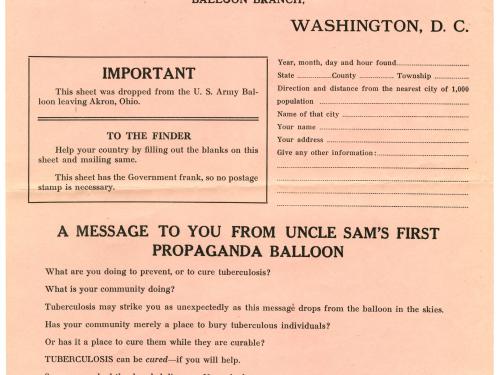
March 24, 2016
Our Archives houses the Technical Reference Files, an important collection of aeronautical and astronautical topics comprised of 1,920 cubic feet of documents, photographs, and ephemera. This important resource is housed in vertical files and is an organic, growing collection to which material is added constantly. Recently, we came across a remarkable document in the Tech Files of the long fight against tuberculosis—shared with you today in recognition of World Tuberculosis Day.
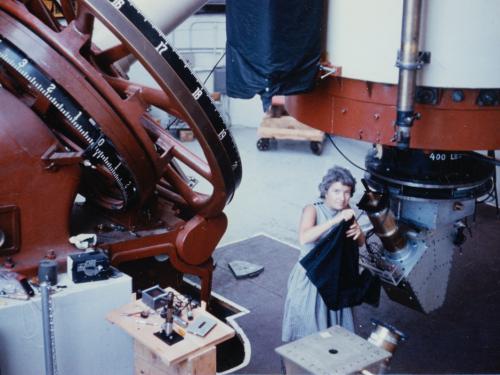
March 23, 2016
One of the many threads in our Explore the Universe gallery is the changing role of women in astronomy over the past two centuries. In the present gallery, opened in September 2001, we examine how the role of women as astronomers has changed over time from assisting family members to leaders of research teams.

March 17, 2016
In 1962, young Linda Halpern decided to fulfill a school assignment by inquiring about how she could pursue a dream. Required to write a letter for a grade-school class, Ms. Halpern addressed hers to President John F. Kennedy, asking what she would need to do to become an astronaut.
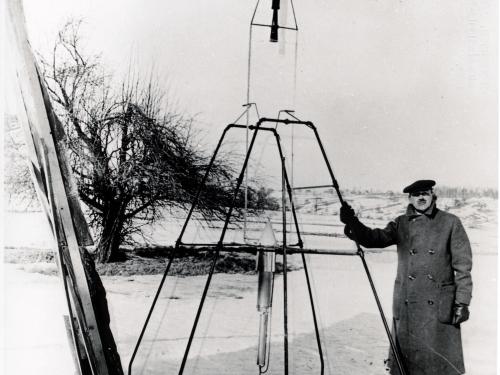
March 16, 2016
On March 16, 1926, Robert H. Goddard (1882-1945) launched the world’s first liquid-propellant rocket. His rickety contraption smashed on impact. Goddard, his wife Esther, and a couple of assistants from Clark University, where he was a physics professor, were the only witnesses.
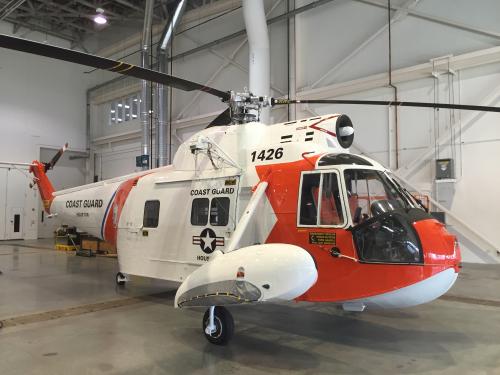
March 14, 2016
Unless you live in a coastal area, or on one of the nation’s waterways, the U.S. Coast Guard is usually out of sight, out of mind, unless something very wrong happens. Unfortunately, this sometimes means that they are overlooked in their significance to our national welfare and security as well as in terms of their own historical legacy and contributions to aerospace.

March 11, 2016
A few years after graduating, Margaret Hamilton soon found herself in charge of software development and production for the Apollo missions to the Moon at the MIT Instrumentation Laboratory.
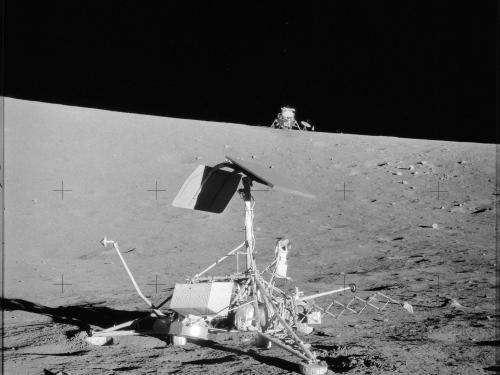
March 09, 2016
On February 26, 2016, we opened our latest exhibition of imagery, A New Moon Rises, in our Art Gallery.

March 07, 2016
This past summer I had the opportunity to operate the world’s largest single-dish telescope at the Arecibo Observatory in Puerto Rico.